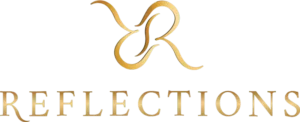The most recent data shows that 61.2 million Americans have used illicit drugs over the past year, but 20.9 million adults consider themselves to be in recovery.
Although it can feel hopeless when you’re using drugs, you can get through the worst drug withdrawal stages with the proper treatment. Learning more about the withdrawal process will help you understand more about the symptoms and how you can cope.
In this guide, you’ll learn everything you need to know about the worst drug withdrawal symptoms and how to find treatment.
What Is Withdrawal?
Withdrawal is the term for the mental and physical effects you experience when reducing or stopping substances like recreational drugs, prescription drugs, or alcohol.
If you’ve been using a substance with a potential for dependency, you can quickly start experiencing symptoms within hours.
Causes of Withdrawal
Your brain works with your body to keep it in a balanced state. When you take a drug, your body has to adjust to the changes it causes.
For example, taking pain medication like opioids creates changes in the neurotransmitters in your brain. Opioids release endorphins, which are feel-good neurotransmitters.
These neurotransmitters change your perception of pain and create euphoric feelings. This causes a temporary sense of well-being which causes people to chase these feelings once the opioid wears off.
In addition, taking stimulant drugs like cocaine gives you feelings of energy, and the body begins to become dependent on this. As a result, you’ll experience extreme exhaustion and mood changes when you stop taking this drug.
What Substances Can Lead to Withdrawal?
Specific substances can lead to severe withdrawal symptoms when you stop taking them.
First, if you drink alcohol long-term, you can experience withdrawal symptoms if you suddenly stop drinking. Many people start feeling shaky and anxious and return to drinking since they can’t tolerate the withdrawal symptoms.
Other drugs that can cause specific withdrawal symptoms include:
- Stimulants
- Opioids
- Depressants
- Hallucinogens
- Inhalants
- Barbiturates
These include drugs like heroin, which can cause intense withdrawal symptoms. You can also experience withdrawal after stopping prescription pain pills like oxycodone.
Symptoms of Withdrawal
So, how do you feel when you’re going through withdrawal? The fact is your symptoms will vary depending on the type of drug you’re taking. It also depends on how long you’ve been using it.
However, you can expect common withdrawal symptoms like:
- Depression
- Anxiety
- Mood changes
- Irritability
- Fatigue
- Nausea and Vomiting
- Muscle pain
- Tremors
- Shaking
- Sweating
- Difficulty sleeping
- Runny nose
You can start feeling withdrawal symptoms within 4 to 6 hours of last taking a drug, sometimes sooner.
Withdrawal symptoms can become extreme for some people. You can have hallucinations, seizures, and severe bouts of paranoia. For this reason, you must be mindful about withdrawing on your own.
In most cases, you’ll need to find a detox program to help you get through the initial phases of withdrawal.
The key is identifying withdrawal symptoms and talking to your doctor if you suddenly stop using them for any reason. Your doctor can help you find a treatment program to help.
How to Cope With the Worst Drug Withdrawal Symptoms
One of the first things you need to do is find a drug and alcohol detox facility in your area to help you get through the initial withdrawal phase.
The withdrawal phase is the first part of your treatment program, and getting the support you need is essential.
Detox Program
Your detox program treatment plan will depend on what drugs or other substances you’ve been taking. You’ll first get a complete physical and mental assessment. You’ll also discuss the symptoms you’ve been experiencing.
Medication-Assisted Treatment
Medical staff will then form a treatment plan to help you manage your symptoms. If you’re taking opioids, you’ll typically need medication-assisted treatment (MAT) to help you manage the symptoms.
MAT, behavioral therapies, and counseling can help people sustain long-term recovery. The FDA has approved specific medications to treat opioid withdrawals.
The medication Suboxone contains buprenorphine and naloxone, which is effective in treating opioid dependence and withdrawal symptoms. It does this by blocking the opioid receptors in your brain. This blocks the effects of opioid drugs and also provides relief from withdrawal symptoms.
You’ll also get other medications to help you with your withdrawal symptoms, like medications for depression, anxiety, and insomnia.
Staff will monitor you 24 hours daily, taking your blood pressure and heart rate to ensure you’re stable throughout detox.
Once you’re stable and beyond the initial detox process, you’ll move on to the next phase of treatment. Addiction treatment programs help you to learn how to manage your recovery long-term.
This phase of treatment can include various treatment programs like:
Residential Inpatient Treatment
Residential inpatient treatment is the most intense type of treatment program and an essential part of addiction recovery. Programs at Reflections in Northern California are a great place to begin.
Inpatient treatment programs are best if you’ve struggled with long-term addiction and need extensive treatment to manage withdrawals and cravings.
Inpatient treatment removes you from your usual environment and allows you to focus on recovering from addiction. You’ll live at the facility and receive a custom treatment plan based on your needs.
Most inpatient programs last around 30 days, depending on your treatment needs. Inpatient treatment includes:
- Holistic treatment approach
- Family programs like family therapy
- Behavioral therapy
- Group therapy
- Discharge and relapse prevention planning
You’ll also cover different weekly topics like stress, anger management, and relationships.
Intensive Outpatient (IOP) Treatment
IOP treatment is a step down from residential treatment. IOP treatment programs usually last 8 to 12 weeks, but this can vary depending on your needs.
IOP treatment is best for people who don’t need 24-hour medical assistance for detox and other needs. It’s best for people who’ve completed a residential program but still need to continue with structured therapy.
It allows you to live at home while attending treatment regularly. You’ll have treatment sessions at least three times a week and also treatment for any co-occurring mental health disorders.
IOP programs include:
- Individual behavioral therapy
- Group therapy
- Family therapy sessions
- Holistic therapy
Keep in mind that you’ll need to meet the admission requirements for this program. This includes living in a supportive home environment that won’t threaten recovery.
At Reflections, you’ll also need to have attended a residential treatment program or be at the beginning of your recovery.
Behavioral Therapy
Behavioral therapy is a considerable component of an addiction treatment program. You’ll have a behavioral therapy treatment plan regardless of what treatment program you’re in.
This is because many people who have an addiction problem also struggle with mental health disorders like:
- Anxiety
- Depression
- Bipolar disorder
- Personality disorders
- Schizophrenia
- Attention-deficit disorder
Substance use disorder (SUD) is a mental health disorder that affects your brain and behavior. It can lead to difficulties controlling the use of various substances like drugs, alcohol, and prescription medications.
People with SUD will take drugs or alcohol no matter what the consequences to their life. In many cases, people with SUD take substances to mask the symptoms they’re experiencing.
Dialectical Behavior Therapy (DBT)
DBT is a type of talk therapy that’s helpful for people with addictive behaviors. It addresses feelings in people who experience emotions intensely. It stems from cognitive behavioral therapy (CBT) but targets people with intense emotions.
DBT focuses on helping you accept the reality that is your present life. It helps you see how your thoughts and emotions impact your behaviors. The main goals of DBT therapy include:
- Helps you learn new skills that replace unhelpful behaviors
- Limit unhealthy behaviors
- Helps you reach relationship goals
- Address things that block your progress
- Improve mindfulness techniques
- Improve emotion regulation
- Learn how to manage stressful situations better
You’ll typically have individual therapy sessions during the week. Group therapy is also a key part of your treatment program. It allows you to interact with other people in the program and get support from others going through the same things.
Finding a dual diagnosis program like Reflections in the Bay Area is best. Dual diagnosis programs have experience treating both substance use disorders and mental health diagnoses.
These programs will ensure you get the treatment you need since it addresses both aspects of addiction.
Holistic and Nutritional Therapies
Proper nutrition and managing stress are also vital to managing long-term withdrawal symptoms.
People don’t typically focus on eating balanced and nutritious meals when in active addiction. Eating unhealthy or insufficient foods makes you feel worse and damages your long-term health.
Therefore, focusing on nutrition and fitness is crucial to recovery as it keeps you in balance. You’ll have more energy, feel better, and improve your health. It teaches you to focus on your health by feeding your body the necessary nutrients.
Holistic therapies are also an essential part of managing withdrawal symptoms long-term. This is because they help you manage stress and emotions, improving your emotional and spiritual health.
It helps you embrace yourself as a whole person and effectively prevents relapse. These therapies include:
- Yoga
- Meditation
- Art therapy
- Equine therapy
- Energy therapy
- Music therapy
- Massage therapy
These therapies help you with mind-body awareness and help you to feel more positive about your recovery process.
Find Drug Withdrawal Treatment Today
Now that you know you can deal with the worst drug withdrawal symptoms, you’ll feel more comfortable with the process.
Remember, you aren’t alone, and the professional staff at Reflections can help you find your path toward recovery. Reflections is a dual diagnosis luxury treatment center in Marin County in Northern California.
We offer various treatment programs like residential treatment and intensive outpatient programs. We also provide dual diagnosis treatment, medication-assisted detox, and extended care options.
Holistic therapies like art therapy, music therapy, and nutritional therapies are also a huge part of our program. We even offer specialized treatment tracks for business executives, LGBTQ+, and VIP celebrity clients.
Make sure to contact us today to get more information about our programs.





